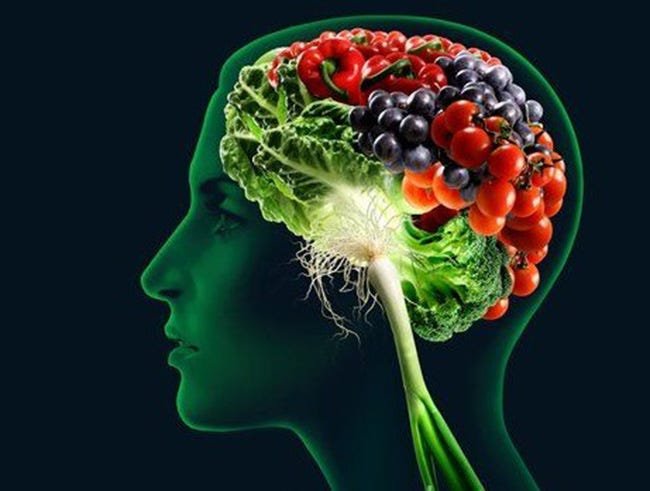Introduction: How To cope with Depression alone?
Depression is more than just feeling sad or having a bad day—it’s a complex mental health condition that affects millions of people worldwide, impacting their thoughts, emotions, and daily lives.
For those experiencing depression, even simple tasks can feel overwhelming, and finding a way out may seem impossible.
However, the good news is that depression is treatable, and there are numerous techniques and strategies that can help individuals regain control of their lives and achieve emotional well-being.
In this blog, we delve into 10 proven techniques for addressing depression, ranging from scientifically backed therapies to lifestyle changes and self-help practices.
Each method is explained in detail, with actionable tips to ensure they are easy to implement in your daily routine.
Whether you’re seeking professional interventions or looking for ways to support a loved one, this guide provides practical insights to help navigate the journey to recovery.
Depression may feel like an insurmountable challenge, but with the right approach and consistent effort, it’s possible to overcome its grip and rediscover joy, purpose, and hope.
Let’s explore these effective techniques that can transform your mental health and pave the way toward a brighter future.
What is The Science of Depression?
Depression is a multifaceted mental health condition arising from a combination of biological, psychological, and environmental factors. Here’s a medium-length explanation of its scientific basis:
- Brain Chemistry Imbalance
Depression is often linked to disruptions in neurotransmitters such as serotonin, dopamine, and norepinephrine, which are responsible for regulating mood, motivation, and emotional well-being. An imbalance in these chemicals can lead to persistent feelings of sadness, lack of energy, and loss of interest in activities.
- Hippocampus: Depression can cause shrinkage in the hippocampus, a region associated with memory and emotional regulation.
- Prefrontal Cortex: Reduced activity in this area impairs decision-making and increases difficulty in managing emotions.
- Amygdala: Overactivity in the amygdala intensifies negative emotions and stress responses.
These changes can impact both cognitive function and emotional stability, making it difficult for individuals to cope with everyday stressors.
- Hormonal Dysregulation
Elevated cortisol levels (the stress hormone) are commonly observed in people with depression. Chronic stress can disrupt the brain’s ability to regulate emotions and contribute to symptoms like fatigue, irritability, and poor concentration. Additionally, conditions like hypothyroidism can mimic or worsen depressive symptoms.
- Genetic and Epigenetic Factors
Genetics play a significant role, with individuals having a family history of depression being more prone to developing the condition. Specific gene variations, such as those affecting serotonin transport, may increase susceptibility. Environmental factors, such as trauma or chronic stress, can also influence gene expression, triggering depression in genetically predisposed individuals.
- Environmental and Psychological Triggers
Life events such as trauma, loss, or prolonged stress can act as triggers for depression. These experiences can alter brain functioning and reinforce negative thought patterns, leading to a cycle of depressive symptoms.
Resource: What causes depression?
What are The Best Coping Strategies For Depression?
1. Cognitive Behavioral Therapy (CBT)
CBT is a structured, evidence-based form of psychotherapy that helps individuals identify and challenge negative thought patterns contributing to depression.
By recognizing these distorted thoughts, such as “I am not good enough” or “Everything will go wrong,” CBT helps individuals replace them with realistic and positive beliefs. This therapy also focuses on modifying behaviors that reinforce depressive feelings, such as isolation or procrastination.
Actionable Tips:
- Thought Records: Write down automatic negative thoughts when feeling low. Identify evidence for and against them, and replace them with balanced perspectives.
- Behavioral Activation: List activities you enjoy but stopped doing. Gradually reintegrate them into your routine to improve mood.
- Work with a Therapist: A CBT-trained therapist can guide you through structured exercises tailored to your challenges.
Resource: Cognitive behavioural therapy (CBT)
2. Exercise and Physical Activity
Exercise is a natural antidepressant that stimulates the release of endorphins and serotonin, chemicals associated with improved mood.
It also reduces stress hormone levels like cortisol and promotes better sleep, both of which are crucial for mental health. Exercise improves physical health, self-esteem, and provides a sense of accomplishment.
Actionable Tips:
- Start Small: Begin with 10-minute activities like brisk walking or stretching to build momentum.
- Combine Fun and Fitness: Choose enjoyable activities like swimming, cycling, or playing a sport.
- Be Consistent: Aim for at least 150 minutes of moderate exercise per week, spread across several days.
3. Mindfulness Meditation
Mindfulness meditation involves focusing on the present moment without judgment.
This practice helps reduce rumination—a hallmark of depression—by training your mind to disengage from repetitive negative thoughts. It enhances self-awareness and fosters a sense of calm.
Actionable Tips:
- Daily Practice: Dedicate 5–20 minutes daily to mindfulness exercises. Focus on your breath or body sensations.
- Use Technology: Apps like Calm, Insight Timer, or Headspace offer guided meditations.
- Engage in Mindful Living: Practice mindfulness in daily activities, such as eating, by savoring each bite and noticing textures and flavors.
Resource: When science meets mindfulness
4. Healthy Diet and Nutrition
Nutrition plays a vital role in mental health. Certain foods can stabilize mood, reduce inflammation, and support neurotransmitter production.
For example, omega-3 fatty acids, found in fish and flaxseeds, are essential for brain health, while B vitamins help regulate energy and mood.
Actionable Tips:
- Mood-Boosting Foods: Incorporate leafy greens, whole grains, nuts, and seeds into meals.
- Hydration: Drink at least 8 glasses of water daily; dehydration can worsen fatigue and mood swings.
- Limit Sugar and Processed Foods: These can cause blood sugar spikes followed by crashes, leading to irritability and fatigue.
Resource: 8 tips for healthy eating
5. Building a Support System
Depression often isolates individuals, but a strong support system can provide validation, encouragement, and accountability.
It reduces feelings of loneliness and creates opportunities for shared joy and understanding.
Actionable Tips:
- Reach Out: Share your feelings with trusted friends or family members, even if it feels difficult.
- Join Support Groups: Local or online communities can connect you with people experiencing similar challenges.
- Volunteer: Helping others can build connections and provide a sense of purpose.
6. Sleep Hygiene
Sleep and depression are closely linked. Poor sleep can exacerbate symptoms of depression, while depression can disrupt sleep patterns.
Practicing good sleep hygiene ensures restorative rest, which is vital for emotional and cognitive functioning.
Actionable Tips:
- Stick to a Schedule: Go to bed and wake up at the same time daily, even on weekends.
- Create a Relaxing Routine: Engage in calming activities like reading or taking a warm bath before bed.
- Limit Screen Time: Avoid screens at least one hour before sleeping to reduce blue light interference.
7. Gratitude Practice
Gratitude practice involves focusing on positive aspects of life, shifting attention away from negative thoughts.
This technique rewires the brain to notice and appreciate small joys, fostering a sense of contentment and hope.
Actionable Tips:
- Keep a Gratitude Journal: Write down three things you’re grateful for each day.
- Express Gratitude: Share your appreciation with others through notes or verbal acknowledgment.
- Reflect Daily: Before sleeping, reflect on positive experiences from your day.
Resource: How to Practice Gratitude
8. Art and Music Therapy
Expressive therapies like art and music help individuals process emotions in creative ways. These therapies bypass verbal expression, allowing deeper feelings to surface and be addressed.
Actionable Tips:
- Art Therapy: Create drawings or paintings that reflect your emotions. Use colors and shapes to represent feelings.
- Music Therapy: Listen to uplifting music or compose your own. Engage in rhythmic activities like drumming for stress relief.
- Join Groups: Participate in community-based art or music therapy programs.
Resource: What is music therapy, and how does it work?
9. Journaling for Emotional Release
Journaling is a therapeutic tool for exploring thoughts and emotions. It provides clarity, reduces mental clutter, and helps identify patterns contributing to depression.
Actionable Tips:
- Morning Pages: Write freely for 10–15 minutes every morning to clear your mind.
- Prompts: Use prompts like “What made me feel good today?” or “What am I struggling with?” to guide writing.
- Track Progress: Review your entries periodically to recognize progress and recurring themes.
10. Goal Setting and Routine Building
Depression often disrupts routine and motivation. Setting small, achievable goals and establishing a daily structure can create a sense of accomplishment and stability.
Actionable Tips:
- Start Small: Set micro-goals, such as making your bed or drinking water first thing in the morning.
- Use a Planner: Schedule daily activities to provide structure and reduce decision fatigue.
- Celebrate Wins: Acknowledge and reward yourself for completing even minor tasks.
Conclusion: How To Enjoy Life With Depression?
Depression is a deeply personal journey, and while it can be challenging, it’s important to remember that you are not alone, and healing is possible.
The techniques discussed in this blog—ranging from Cognitive Behavioral Therapy and mindfulness meditation to lifestyle changes like exercise and nutrition—offer diverse and effective ways to manage and overcome depression.
Each method provides unique benefits, and when combined, they can create a holistic approach to mental health recovery.
The key to success lies in taking small, consistent steps. Start by integrating one or two techniques into your daily life, and gradually build a routine that works for you.
Whether it’s practicing gratitude, exploring creative therapies, or reaching out to a support system, every action you take brings you closer to emotional well-being.
Remember, seeking professional help is never a sign of weakness but a courageous step toward reclaiming your life.
Recovery from depression is not a one-size-fits-all process, but with patience, persistence, and the right strategies, a brighter and more fulfilling life is within reach.
Celebrate your progress, no matter how small, and trust in your ability to heal. By embracing these techniques and prioritizing your mental health, you are paving the way for a happier, healthier future.
Your journey toward recovery starts today—take that first step.

